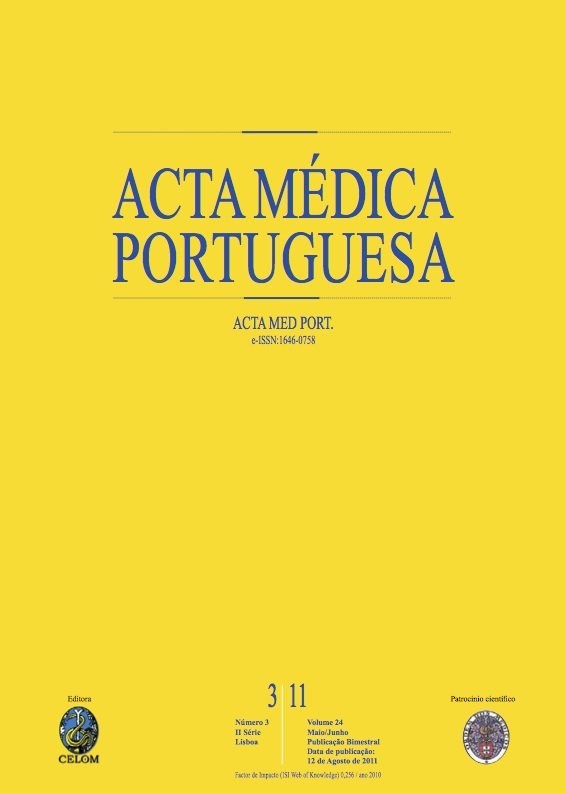Driving under the influence of benzodiazepines and antidepressants: prescription and abuse.
DOI:
https://doi.org/10.20344/amp.461Abstract
Benzodiazepines are drugs usually used in anxiety disorders, dyssomnias, convulsions, muscle disorders, alcohol and other drugs detoxification, as well as in preoperative sedation/amnesia. Moreover, antidepressants are mainly indicated in depression and as co-therapeutic drugs in other psychiatric disorders. The use of benzodiazepines and antidepressants is associated with some health and public safety problems. Decreased of attention, concentration, reflexes, visual capacity, motor coordination and reasoning, associated with increased reaction time and lack of awareness of driving impairment among these drug users, contributes to the increased risk on traffic safety linked with these drugs. This risk may further increase with non-compliance of medical prescription, drug abuse or concomitant use of alcohol. The relationship between the use of psychoactive drugs and road traffic safety is, however, an extremely complex subject and has a primordial importance in the clarification of the role of benzodiazepine and antidepressant effects on driving skills. The prevention of driving under the influence of these drugs depends on the awareness, among doctors, of the risks associated with their use. Thus, the consciousness of medical prescription, as well as providing clear information to patients is extremely important.Downloads
Downloads
How to Cite
Issue
Section
License
All the articles published in the AMP are open access and comply with the requirements of funding agencies or academic institutions. The AMP is governed by the terms of the Creative Commons ‘Attribution – Non-Commercial Use - (CC-BY-NC)’ license, regarding the use by third parties.
It is the author’s responsibility to obtain approval for the reproduction of figures, tables, etc. from other publications.
Upon acceptance of an article for publication, the authors will be asked to complete the ICMJE “Copyright Liability and Copyright Sharing Statement “(http://www.actamedicaportuguesa.com/info/AMP-NormasPublicacao.pdf) and the “Declaration of Potential Conflicts of Interest” (http:// www.icmje.org/conflicts-of-interest). An e-mail will be sent to the corresponding author to acknowledge receipt of the manuscript.
After publication, the authors are authorised to make their articles available in repositories of their institutions of origin, as long as they always mention where they were published and according to the Creative Commons license.









